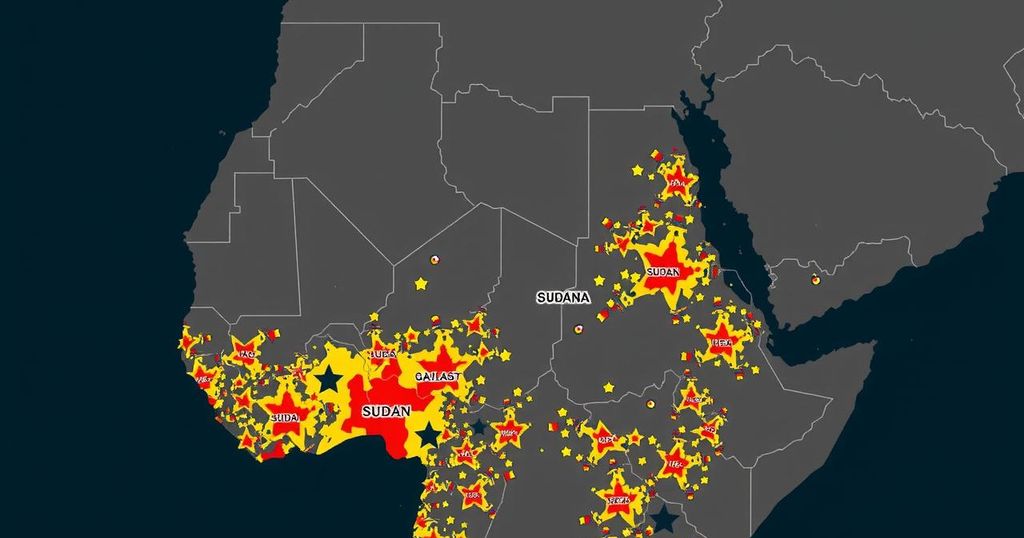A new study reveals that the death toll in Sudan’s civil war exceeds previous estimates, with over 61,000 deaths reported in Khartoum State alone. The conflict has led to severe hunger, affecting half of Sudan’s population. Major causes of death include preventable diseases and violence, with unrecorded deaths indicating a more severe crisis than previously believed. International efforts to address the situation and negotiate peace continue amidst significant challenges.
Recent research indicates that the death toll from the civil war in Sudan is significantly higher than prior estimates, with aid organizations warning of a severe humanitarian crisis resulting in widespread hunger. A study by the London School of Hygiene and Tropical Medicine revealed that in Khartoum State alone, over 61,000 individuals died from various causes between April 2023 and June 2024, marking a 50% increase in the death rate compared to pre-war figures.
Moreover, the study estimates that more than 26,000 deaths resulted from violence during this period, surpassing the total reported intentional-injury deaths for the entire country by the Armed Conflict Location & Event Data Project (ACLED). The primary causes of death were found to be preventable diseases and starvation, with over 90% of deaths in Khartoum State going unrecorded. This pattern suggests that the death toll in other regions is likely underestimated as well.
The civil war, which began in April 2023, arose from a power struggle between the Sudanese army and the paramilitary Rapid Support Forces. This conflict has disrupted communities and devastated governmental services, complicating efforts to accurately tally excess deaths resulting from the war.
The study utilized a method known as “capture-recapture analysis,” allowing researchers to determine unrecorded deaths by comparing data from several different sources. According to lead author Maysoon Dahab, “It allows us to estimate the number of unrecorded events, in this case, deaths. We’ve done that by collecting data from three different sources.”
In a related note, the organization Doctors Without Borders reported that since January, one in six patients treated in their Khartoum hospital were children under the age of 15, showcasing an alarming increase in severe malnutrition cases among children due to the ongoing crisis. The United Nations has revealed that an estimated 11 million people have been forced to flee their homes, with 25 million individuals, constituting half of Sudan’s population, requiring food assistance, indicating the gravity of the hunger crisis.
Maysoon Dahab emphasized the urgent requirement for the international community to enhance and expand aid to underserved populations affected by the conflict. The issue has drawn attention from global leaders, including U.S. Special Envoy to Sudan, Thomas Perriello, who noted ongoing international efforts to bring an end to the violence. Despite these efforts, there are no clear indications that both warring factions are willing to negotiate a ceasefire. Furthermore, Russia’s recent veto of a United Nations Security Council resolution aimed at establishing a ceasefire has drawn criticism from Britain, highlighting the complexities of resolving this brutal conflict.
The ongoing civil war in Sudan presents one of the most severe humanitarian crises in the world, driven by a power struggle between the military and paramilitary groups. The situation has led to widespread displacement, starvation, and preventable diseases. Understanding the impact of the conflict is crucial for the global community as they seek to provide aid and facilitate negotiations for peace.
In conclusion, the civil war in Sudan has resulted in a staggering increase in the death toll and a dire humanitarian crisis. The findings from the London School of Hygiene and Tropical Medicine highlight an urgent need for heightened international intervention and aid distribution to address the suffering of millions. The international community must leverage this new data to prioritize and support effective humanitarian responses and push for a resolution to the conflict.
Original Source: www.voanews.com






